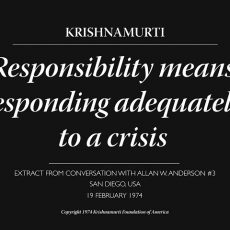A financial crisis can affect not only your professional or personal life but most importantly, your health. It can make you feel as if turning things around will be impossible.
Two of the most common effects are anxiety and depression. And these two walk hand-in-hand. When one is anxious most of the time, they increase their chances of developing depression and when one has developed depression, anxiety is a common symptom. Each one is debilitating in its own way.
Anxiety can manifest in multiple ways but most people report suffering from panic attacks. They feel as if their chest is tightening, breathing becomes difficult and a feeling of impending doom persists – the idea that something terrible is going to happen and the idea does not seem to go away. Anxiety is not only in the shape of a panic attack, you can also experience it in other ways – racing and unwanted thoughts, profuse sweating, trembling, nausea, and a rapid heartbeat.
Depression is something that’s beyond the general feelings of sadness and self-doubt. Depression persists for a longer period of time, it involves changes in mood, appetite and sleep. One does not enjoy doing activities that they previously loved and may involve in dark thoughts or risky behaviours. Depression could be caused by the divorce or death of someone close, and now the financial burden remains on you to support your household with only one income.
Other conditions that can be caused or worsened by financial stress include:
- Heart Disease/Attack
- Weight Gain/Loss
- Eating Disorders
- Diabetes
- Insomnia
- Cancer
- High Blood Pressure
- Substance Abuse
In this part, we discuss how does one bring up the topic of money without damaging what is otherwise a fulfilling relationship? Here are some tips:
Make Sure What You Intend To Discuss Is Actually About Money
Many a time, the issue at hand is less about money and more about self-esteem, control, security or trust. Before discussing the issue with your partner, be honest and ask yourself if money is actually the cause of the trouble or whether we are dealing with a bigger problem here, of which money is just a symptom.
Be Honest To Yourself About How You Feel About Money
Are you a spender or a saver or just neutral? Did you have enough money while growing up? Did your parents’ salaries make you feel secure? Be aware of where it is that you exactly stand when it comes to money. Afterall, what you’ll be discussing is not just some piece of paper but something that also been attached with certain emotions.
Find A Calm Time To Talk
Discussing a money related matter right in the middle of a financial crisis will not get the best out of either you or your partner. So it’s best to do this once the high tides have passed. Put out how you feel (rather than how your partner makes you feel) about the cash in the house. Let your partner be listened to too. Ask them how they feel about money and let them know how you do, too.
Discuss hypothetical solutions to money related problems you two might face in the future – fired from a high paying job, having separate bank accounts, lost credit card and so on.
Some people may not be immediately ready to talk about money. Give them some time but be persistent. If they still do not bring things to the table, that’s a red flag right there.
Understand Your Partner’s Perspective
Research says that while women tend to be more stable and saving (for emergency situations) when it comes to money, men tend to be more risky and see money issues as a threat to their self-esteem.
Try and understand your partner’s perspective. Manytimes, you two will agree to disagree but don’t let such disagreements become so big that they come into the way of your overall goals as a couple.
Set Rules & Limits
Now that everything is set, it is important to come up with general spending rules or limits.





